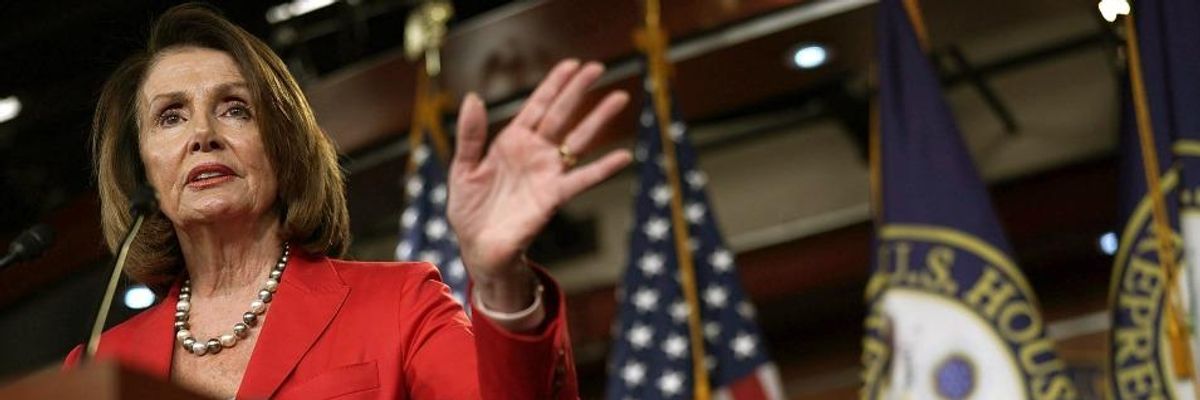Despite mounting evidence that support for Medicare for All is "spreading like wildfire" and has become a winning issue for Democratic candidates, House Democratic leader Nancy Pelosi is drawing ire from progressives following a press conference on Thursday where she told reporters that she is open only to "evaluating" the idea if the party wins control of Congress in the mid-terms.
According to the Center for Responsive Politics, Pelosi has taken more than $200,000 in donations from the health sector in the 2017-2018 election cycle.
Far from being a fringe issue, Medicare for All now has the support of 51 percent of Americans polled by the Washington Post and Kaiser Family Foundation.
Several Democratic candidates running for congressional seats throughout the country--in both blue and red districts--have won elections in recent months on platforms that proudly support Medicare for All.
Deb Haaland is considered likely to win a congressional seat in New Mexico's 1st district after winning the Democratic primary on Tuesday with a platform that called for Medicare for All. In Texas and Illinois last month, universal healthcare proponents Gina Ortiz-Jones and Sean Casten also won their Democratic primaries for House seats.
And after sharing with voters the story of her mother's inability to afford prescriptions while suffering from cancer, and winning the endorsements of Sen. Bernie Sanders (I-Vt.) and Rep. Keith Ellison (D-Minn.), Medicare for All advocate Kara Eastman beat Brad Ashford for the Democratic nomination in Nebraska's 2nd district--even as the Democratic Congressional Campaign Committee (DCCC) threw its support behind Ashford.
Several Democratic lawmakers who are considered potential 2020 presidential candidates have also announced their support for Medicare for All, with Sens. Kirsten Gillibrand (D-N.Y.), Cory Booker (D-N.J.), Kamala Harris (D-Calif.), and Elizabeth Warren (D-Mass.) joining Sanders in co-sponsoring his Medicare for All bill.
"I've always been for a public option so I'm always eager to talk about that," Pelosi said at a press conference. "Some of the other issues that have been proposed have to be evaluated in terms of the access that they give, the affordability of it and how we would pay for it, but again it's all on the table."
Pelosi's statement echoed her support for reinstating rules, aimed at avoiding legislation that adds to budget deficits, which progressives say undermines ambitious, innovative new policies.
Pelosi's statement coincides with her support this week for reinstating pay-as-you-go rules--a move progressives warn is a direct attack on the kind of bold and inspiring policies that voters are demanding.
Contrary to Pelosi's suggestion that Medicare for All would be prohibitively expensive, Sanders estimates that his plan would cost Americans $6 trillion less than the current for-profit insurance system over the next decade.

